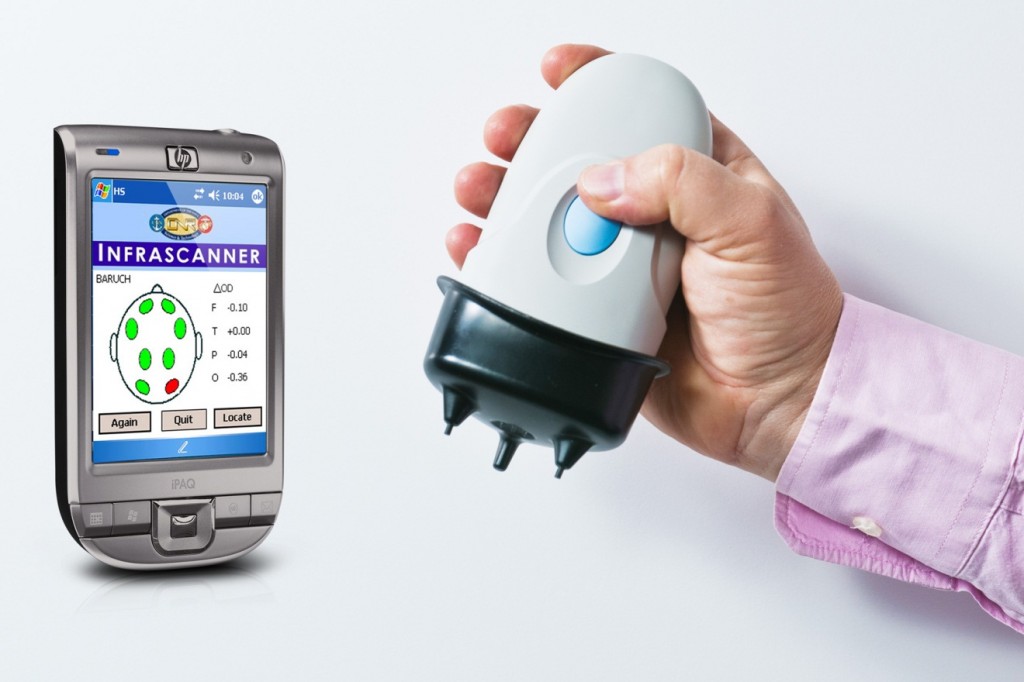Some call it the “walk and die” syndrome: a person seems completely okay after a blow to the head only to suddenly lose consciousness and die hours later.

One of the most famous cases of this involved Natasha Richardson. After hitting her head while skiing on the bunny slopes, she felt fine enough to refuse medical attention. Shortly after the fall she complained of a headache and was taken to a local hospital. Seven hours after her fall she was admitted to Hopital du Sacre-Coeur in Montreal in critical condition. There, she slipped into a coma and died.
Brain Saving Technology
Natasha Richardson died of an epidural hematoma, or the pooling of blood between the skull and the brain. This occurs because of a brain hemorrhage, the rupture of blood vessels in the brain that leads to a brain bleed. As blood accumulates, it puts pressure on the sensitive brain tissue, causing irreparable damage and sometimes death. Symptoms from intracranial hematoma – a term for blood collection either in the brain or between the brain and the skull – do not always appear immediately. Patients in desperate need of emergency medical treatment after an accident or a fall may not appear to be as deeply injured as they are.
Luckily, in December 2011, a portable scanner was FDA approved for on-site detection of intracranial hematoma.The Infrascanner, Model 1000, uses near-infrared light, which can travel through tissue and bone, to detect possible brain bleeds.

Infrascanner Model 1000 Sensor with Disposable Shield and PDA
The blood from a hematoma absorbs the light differently than the rest of the brain, so trained professionals can compare scans from different points on the skull to detect differences that indicate the potential for a bleed. The test takes less than two minutes.
According to the FDA, The Infrascanner detected 75 percent of hematomas detected by a CT scan. Where no hematoma was present on a CT scan, the Infrascanner gave a negative result 82 percent of the time. That means that the Infrascanner is by no means perfect and is not meant to give a definitive diagnosis. It can, however, save lives.
In the Heat of the Moment
During emergencies, EMTs and ER staff must make quick decisions on what injuries take priority. Someone sitting dazed but awake and aware in the corner with a bump on the head may not seem to warrant immediate attention. The ability to check for hematomas on site, however, could reveal a hidden problem, prompting the immediate medical attention needed to save someone with a brain bleed.
The United States Marines recognize the potential presented by the Infrascanner. They tested the device in Afghanistan from September 2011 to April 2012, during which time it saved at least two lives by detecting a brain bleed. On the flip side, it ruled out bleeding in other cases, saving on risky and expensive medical flights.
Over all, the device seems very well suited to use in the field: portable, water resistant and able to perform at a range of temperatures.
Symptoms You Should Not Ignore
Whether or not you think you hit your head hard enough to sustain injury, if you experience these symptoms, seek immediate medical attention.
- Sudden severe headache
- Seizures with no previous history
- Weakness in your limbs
- Nausea or vomiting
- Decreased alertness
- Changes in Vision
- Tingling or numbness
- Cognitive difficulty
- Difficult swallowing
- Loss of fine motor skills, coordination or balance
- Abnormal sense of taste
- Loss of consciousness
While head trauma accounts for the majority of hematomas for those under 50, it is not the only causes. Other risk factors and causes are:
- High blood pressure
- Aneurysm
- Blood vessel abnormalities
- Amyloid angiopathy
- Blood clotting or bleeding disorders
- Liver disease
- Brain tumors
Certain medications, such as Coumadin and Lipitor, have also been linked to an increased risk of brain bleeds. Anyone on blood thinners should take extra caution to be thoroughly checked out after a head injury or if they develop any of the above symptoms.
Contact Us
If you have suffered or lost a loved one due to a traumatic brain injury please contact us immediately. You may be eligible for compensation that will help you over come the financial and emotional burdens of TBI. We offer a free consultation with one of our experienced attorneys to discuss your legal rights and options.


